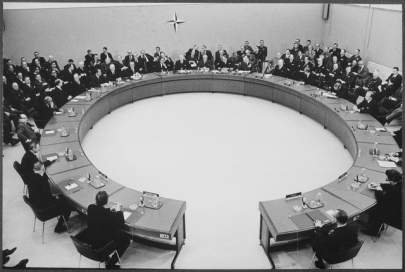NATO chief tells Turkey’s Erdogan that ‘the time has come’ to let Sweden join the alliance
Friday, December 1, 2023
Original source: AP News
Updated 9:59 AM EST, December 1, 2023

DUBAI, United Arab Emirates (AP) — NATO Secretary-General Jens Stoltenberg says he has told Turkey’s president that “the time has come” to let Sweden become a member of the military alliance.
Turkey and Hungary are the only NATO countries that have not yet formally approved Sweden’s accession bid.
Stoltenberg told The Associated Press that he urged Turkey to finalize the process as he met with President Recep Tayyip Erdogan on Friday on the sidelines of the COP28 climate summit in Dubai.
“I met with President Erdogan this morning and I reiterated my message that the time has come to finalize the accession process for Sweden,” he said.
Turkey has delayed ratification for more than a year, accusing Sweden of not taking Turkey’s security concerns seriously enough, including its fight against Kurdish militants and other groups that Ankara considers to be security threats.
An apparent breakthrough happened at a NATO summit in July when Erdogan said he would submit accession documents to Parliament, but a debate on the matter in the foreign affairs committee was adjourned last month without a decision.
Stoltenberg couldn’t say when he expected the ratification process to be completed.
“I’m not able to give an exact date, but I welcome the fact that just a few weeks ago President Erdogan submitted the papers for ratification to the Turkish Parliament,” the NATO leader said. “My message in the meeting today was, of course, that now the time has come to ensure that the Parliament finalizes its deliberations and concludes the ratification of Sweden as a formal NATO member.”
Sweden and neighboring Finland decided to drop their long-standing policy of non-alignment and apply for NATO membership following Russia’s full-scale invasion of Ukraine last year. Finland joined NATO in April. New members must be approved by all existing members of the alliance.











